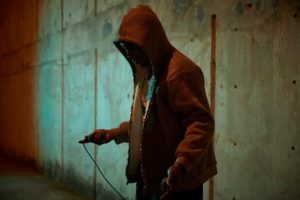Radicalisation
Prevent and Counter Extremism

What is Prevent?
- Prevent aims to identify individuals who may be at risk of being radicalised, becoming terrorists or becoming involved in supporting terrorism.
- Prevent is a voluntary ‘pre-criminal’ service that offers non-compulsory safeguarding support to vulnerable residents.
- Prevent deals with all forms of extremism. This includes violent and non-violent extremism, ISIS Inspired, the Far-Right, Extreme-Right Wing, Anti-Semitism and the Far-Left.
Prevent in Greenwich
- The Royal Borough of Greenwich has its own dedicated multi agency team that helps to safeguard young people and adults from the risk of radicalisation.
- The team perform outreach work to many establishments across the borough including; schools, community centres, faith settings and adult learning centres.
What are the warning signs?
- There is no single route to radicalisation. It can occur quickly, or over a longer period of time. Sometimes there are clear warning signs, but sometimes it’s much less obvious. Possible signs can include:
- Changes in attitudes or opinions – refusal to engage with peers who are different to themselves.
- Changes in behaviour and peer group – rejecting activities they used to enjoy.
- Secretive behaviour – spending a lot of time online.
- Support for extremist groups and ideology.
What should I do if I have any concerns about a child or adult?
- If you are a professional worried about an adult or child please submit your referral via the Prevent National Referral Form.
- If you are a member of the public concerned about a family member, neighbour, or someone in the community you can seek advice and guidance from the Action Counters Terrorism Hotline (ACT).
Follow this link to learn about: Making a referral to Prevent – GOV.UK (www.gov.uk)
Please remember a Prevent Referral should not replace a referral to the Multi-Agency Safeguarding Hub (MASH), but rather is an addition (where required). If you believe there is a safeguarding risk, please still refer to children’s and/or adult safeguarding as well.
If you think someone is in immediate danger, call 999 or the confidential Anti-Terrorist Hotline on 0800 789 321.
The Councils Prevent Team can be reached on: prevent@royalgreenwich.gov.uk if required.
Extremist groups use the internet and social media to spread their ideology and recruit vulnerable young people. Extremist are using sites such as Facebook, Twitter, Instagram or YouTube but young people may be invited to join discussions on less well-known sites such as Kik, Whisper, Messenger, Yik Yak or Telegram. Extremists often use these sites because they are harder to monitor and they can hide their identity.
Download this useful Parent/Carer Guide to share with families you work with ‘Parent/Carer Guide – Online Radicalisation‘

